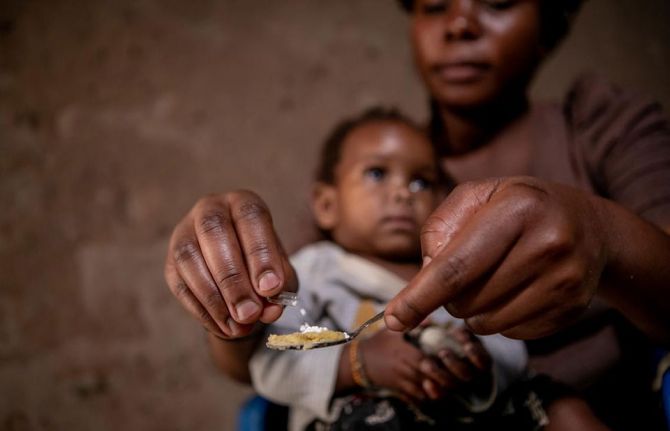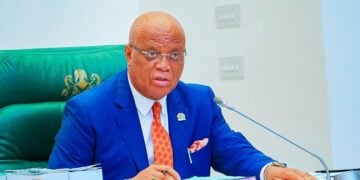Minister of state for health, Dr. Iziaq Salako, has said Nigeria has made progress in preventing mother-to-child transmission (PMTCT) of HIV, with coverage improving to 66 percent and early infant diagnosis reaching 57 per cent in 2024.
The minister, however, stated that despite these gains, Nigeria still accounts for over 9,000 new paediatric HIV infections every year, placing the country among those with the highest global burden of HIV in children.
He spoke yesterday at the National HIV Health Sector Symposium, themed: “Advancing PMTCT and Paediatric Treatment Coverage for Nigeria,” organised by the National AIDS, Viral Hepatitis, and STIs Control Programme (NASCP) of the Federal Ministry of Health and Social Welfare, in Abuja.
He said, “Our PMTCT programme is no doubt recording some significant progress with more pregnant women living with HIV/AIDS accessing ART than ever before, and national PMTCT coverage and early infant diagnosis improving to 66 and 57 per cent respectively as at 2024. Also, the Paediatric ART coverage has improved from 29 per cent to 74 per cent in 2024.
At the event, first lady, Senator Oluremi Tinubu, has said despite commendable progress in maternal testing and care, major gaps still exist in prevention and treatment of paediatric HIV in the country.
Highlighting the gains made in HIV testing during pregnancy and access to treatment for women, the first lady noted that Nigeria still accounts for one in every five children born with HIV globally.
Represented by the minister of women affairs, Hajiya Imaan Sulaiman-Ibrahim, Mrs Tinubu said, “Sadly, our women, children, and other vulnerable groups remain the most affected. Many babies born to HIV-positive mothers are not tested early enough, largely because their mothers are either unaware or uninformed about the risks,” she said.
She referenced the recently concluded Free to Shine campaign, an initiative of the African Union and the Organisation of African First Ladies for Development (OAFLAD), which was conducted across the six geopolitical zones to raise awareness and renew commitments toward eliminating mother-to-child transmission of HIV, syphilis, and hepatitis.
She called on stakeholders to take bold steps to close existing gaps by making HIV testing and treatment universally available, ensuring early testing for all HIV-exposed infants, supporting people to stay on treatment without stigma or barriers, and fully implementing the triple elimination strategy of HIV, syphilis, and hepatitis.
“Our goal is to ensure that no child is born with HIV and no mother is left behind in accessing treatment,” she stressed.
She commended Prof. Muhammad Ali Pate, the coordinating minister of health and social welfare, and his team for organising the symposium. She reiterated her commitment to advocating for the health and well-being of women and children across the country.
“Despite this progress, the statistics constantly remind us that our work is far from over. Nigeria, unfortunately, remains one of the countries with the highest burden of pediatric HIV contributing over 9000 new child infections annually. This is a clear call to action, to collaborate, and to accelerate our efforts to close the existing gaps in PMTCT and Early Infant Diagnosis (EID) coverage.”
Dr Salako reiterated the federal government’s commitment to eliminating paediatric HIV and closing gaps in PMTCT services across the country.
He described the symposium as a critical platform to reassess national efforts toward an HIV-free generation.
He praised the first lady, Senator Oluremi Tinubu, for her sustained advocacy and leadership in health through the Renewed Hope Initiative and the Free to Shine campaign, describing her as “a chief public health champion.” Her contributions, he said, have helped mobilised priority attention and support for HIV prevention and control, particularly among women and children.
The minister emphasised the country’s multi-pronged strategy, which includes treatment, voluntary male circumcision, pre- and post-exposure prophylaxis, condom promotion, and social behaviour change campaigns. Currently, about 1.7 million Nigerians living with HIV are receiving free ART, he added.











